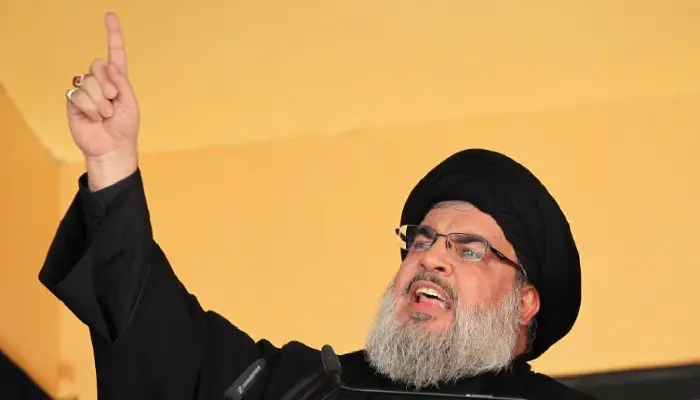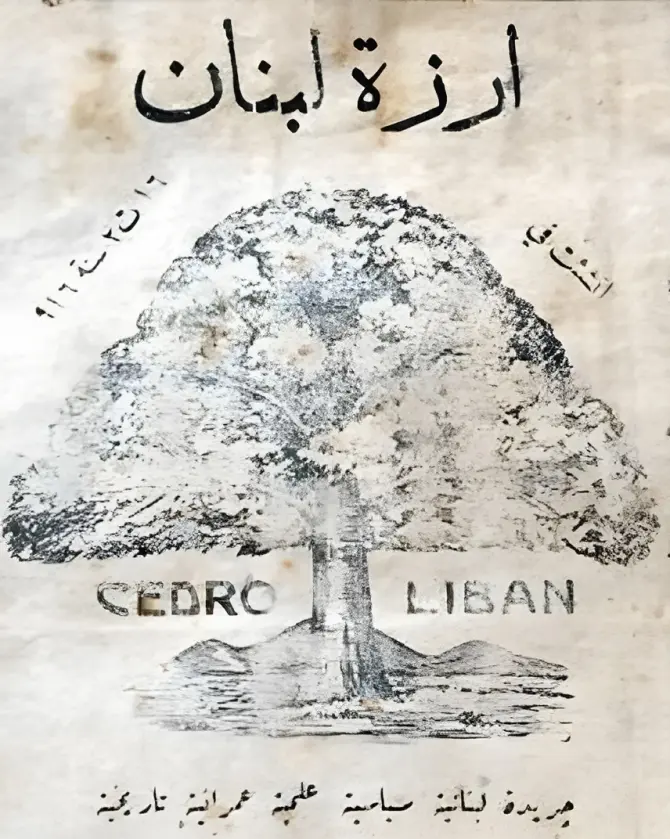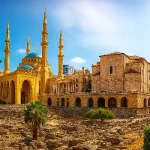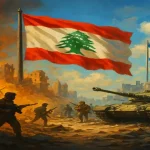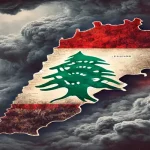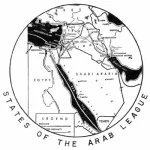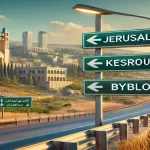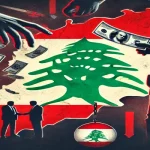Preventing the implementation of United Nations Security Council (UNSC) resolution 1701 is no longer an option as enormous international pressure is being applied on Hezbollah. The continuous stream of French and American envoys aims at creating a buffer zone depleted of weapons between the border and the southern banks of the Litani river, an area where Hezbollah’s Radwan Brigades are most active. Article 8 of resolution 1701 stipulates the complete withdrawal from that area of weapons and gunmen, except for the Lebanese Armed Forces (LAF) and UNIFIL contingents (United Nations Interim Force in Lebanon). [See: http://unscr.com/en/resolutions/1701].
The intense international attention to Lebanon is not spontaneous; it is the result of a decision by Benjamin Netanyahu’s Israeli war cabinet to force an implementation of the UN resolution through either diplomacy or a military land operation. The Lebanon border has become a major thorn in Israel’s north now emptied of its population because of the skirmishes between Hezbollah and Israel. An estimated 150,000 Israelis have evacuated their settlements.
The question now is: What is the fate of Hezbollah’s weapons once UNSC 1701 is implemented?
The end of Hezbollah’s weapons?
Israel has apparently decided to put an end to the presence of Iran’s military arms along its border, namely Hamas in southern Israel and Hezbollah in its north. It has requested the international stakeholders to inform Lebanese officials, despite their lack of authority and effectiveness, that Israel is serious about its threats and that it has drawn up plans to invade the south and push Hezbollah north of the Litani, short of a diplomatic solution.
On this side of the border, Hezbollah has rejected any talks about implementing UNSC 1701 before the war in Gaza comes to an end. Hezbollah insiders say that implementing 1701 begins with addressing the core issues of Israel’s violations, namely its control of Lebanese territories such as Kfar Shouba, Northern Ghajar and the Shebaa Farms.
Lebanon is insisting on resolving the dispute over 13 contested areas along the 120-Km long “Blue Line” border, which was delineated by the UN in 2000 following the Israeli withdrawal. The Blue Line begins at point B1 in the gulf of Naqoura separating Lebanon’s shores and land from Israel.
The border region is divided into three sectors: east, west and central. This area is supposed to be free of weapons according to 1701. It is noteworthy that Hezbollah’s response to the mediators who are negotiating with it is that it will only accept a return to 1701 as it had been “implemented” prior to last October 7, which means that Hezbollah wants to maintain its presence and its weapons in the south but in a covert manner and without initiating attacks against Israel.
Will this be satisfactory for Tel Aviv? Will the international community continue to accept that official Lebanon says it is committed to 1701 while the Lebanese south is a playground for Hezbollah and its accessories?
Violence to Prevent Implementing 1701
The race appears to be fierce between diplomacy and war, though it is likely that Israel will not wait too long in the face of Hezbollah’s tergiversations in responding to the international diplomatic efforts. Israel might even launch its land attack as soon as it ascertains the failure of diplomacy. It has mobilized some 320,000 reservists, a good many of them deployed along its northern border with Lebanon, while another contingent is on the Golan front. Not to forget that US forces have pledged to back Israel in case of war with Hezbollah.
Meanwhile, Lebanese public opinion and political opposition groups strive to implement 1701 which would relieve the residents of the south from further battles between Israel and Hezbollah. The Lebanese south has been decimated in its economy, agriculture and industry, in addition to the impact the border clashes have had on tourism in general in the country.
There are, however, fears among opposition circles that international efforts focus on specific provisions of 1701 that serve Israel’s interests without dealing with the impact of Hezbollah’s weapons on the Lebanese domestic front. In this regard, resolution 1701 stipulates the full implementation of the Taef Agreement and of UNSC resolutions 1559 and 1680, all of which call for the disarming of all Lebanese groups and the absence of foreign forces, without the consent of the Lebanese government.
The reality on the ground is that the Lebanese opposition feels that the international focus is on one provision of resolution 1701, namely article 8 which requires the withdrawal of Hezbollah to the Litani, as if the international decision-makers, notably the US and France, want to definitively close the chapter of resolution 1559. Thus, there appears to be no interest in a solution to the problem Hezbollah poses to the Lebanese interior.
For instance, Lebanese journalist Aya Oueiss told “Al-Hal.Net” that Hezbollah will focus on the Lebanese interior and will extract benefits from its position of power. The opposition fears that the ongoing diplomatic negotiations may be inching toward granting Hezbollah a political prize domestically in exchange for its withdrawal to the Litani.
Will Lebanon recover into a viable state?
If resolution 1701 is implemented and Hezbollah withdraws to the Litani, it will de facto lose the legitimacy of its weapons. Since these weapons will no longer be useful against Israel, Hezbollah might turn them against the domestic front and use them to impose its will and score political gains against the other Lebanese communities. Not to lose sight of the fact that Hezbollah’s weapons are organically connected to Iran’s expansionist project and may be used to achieve strategic objectives that do not concern the Lebanese.
What awaits Hezbollah if a buffer zone is established south of the Litani?
In accordance with resolution 1701, the Lebanese army will cross the Litani river southward, backed by a 15,000-strong UN force led by France, and take control of the area after the withdrawal of Hezbollah and Israeli forces.
These considerations are not academic. Hezbollah’s weapons were indeed used in the assassination of former Prime Minister Rafik Hariri. The International Special Tribunal for Lebanon has convicted a Hezbollah member, Salim Ayyash, in that crime and Hezbollah has also been accused of dozens of assassinations of opposition figures. Hezbollah’s weapons were also used on May 7, 2008, against some residents of Beirut and the Shouf District, and were then relocated to Syria when Hezbollah joined the Syrian war in defense of Bashar Assad. Hezbollah’s weapons were also used in the Yemen war and the instability in Iraq. The Lebanese have also felt that Hezbollah’s weapons were pointed at them in the various incidents in Khaldeh, Ain Remmaneh and Kahhaleh.
Is Hezbollah Closer to Taking Over the Lebanese army?
For now, Hezbollah resorts to calling anyone who questions its weapons as a traitor. If it agrees to implement resolution 1701, it won’t be able to accuse of treason anyone who demands the implementation of the resolution. Lebanon is attached to the legitimacy of international decisions, especially those resolutions that are founded on the Taef Agreement and preceding resolutions, all documented in 1701.
Clearly, when Hezbollah consented to resolution 1701 back in August 2006 it aimed at stopping the war and limiting its losses, but it then shifted to empty it of its substance by going back to old habits: It did not comply with its provisions, it maintained its arsenal and military role, and it fabricated the red herring of the “local residents” who were tasked with obstructing UNIFIL’s movements.
Some observers surmise that Iran will not risk losing Hezbollah, which it considers to be its crowning achievement at the cost of money, weapons and ideology. Iran might force Hezbollah to retreat behind the Litani in response to international pressure, the goal being to maintain control over the internal Lebanese scene, consolidate Hezbollah’s gains, and not lose the cards it holds in Lebanon.
The Lebanese opposition is facing the challenge of preventing Hezbollah from taking over the institutions of the country. It has already scored a victory by denying the presidency to Hezbollah’s candidate, Sleiman Frangieh. It has also succeeded in extending the term of Army chief Joseph Aoun.
Yet there remain significant questions regarding Hezbollah’s weapons after a possible implementation of resolution 1701, since nothing prevents Hezbollah from imposing its will on its rivals and coercing them to comply with the power of its weapons. The Lebanese people are resilient but have tired of Hezbollah’s conversion of Lebanon into a battlefield for Iran, what with the impact this has had on the economy and the worsening of living conditions.
(Translated from Arabic) see the original article at https://shorturl.at/zB027

